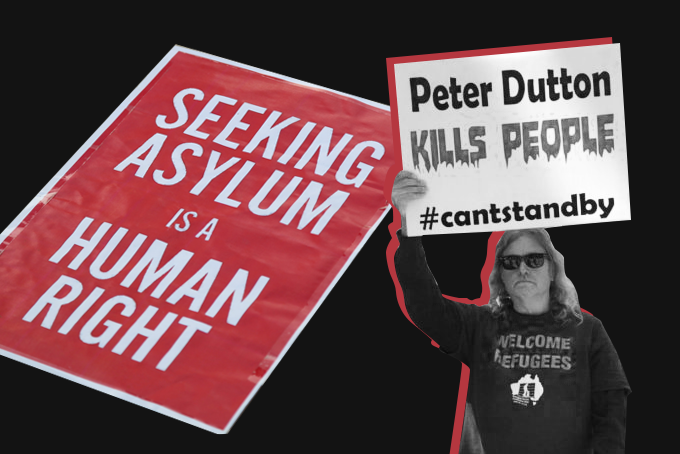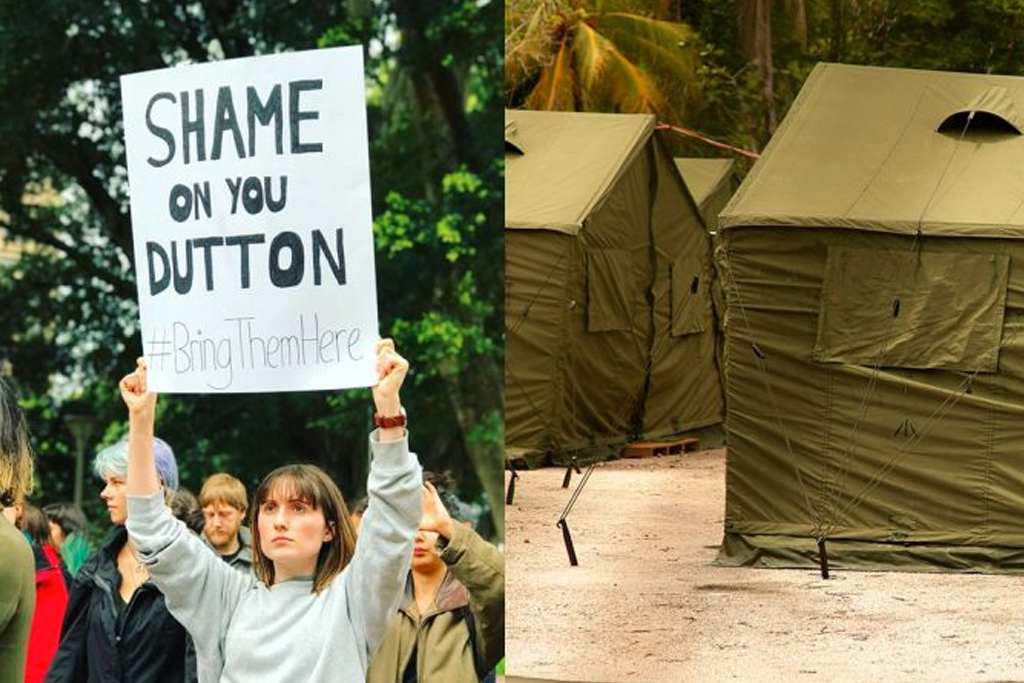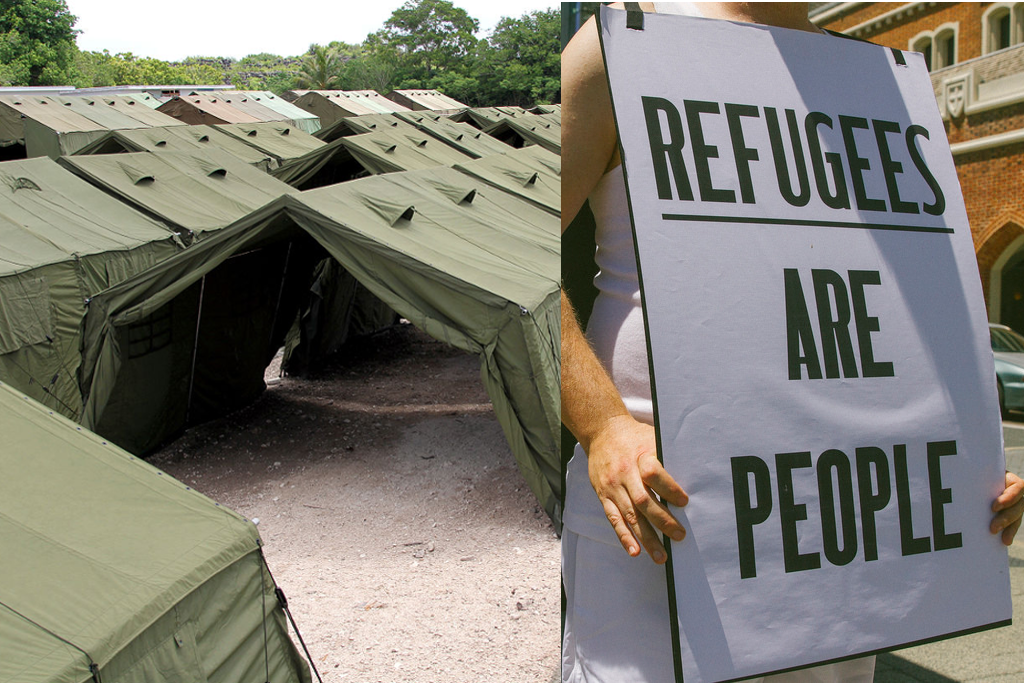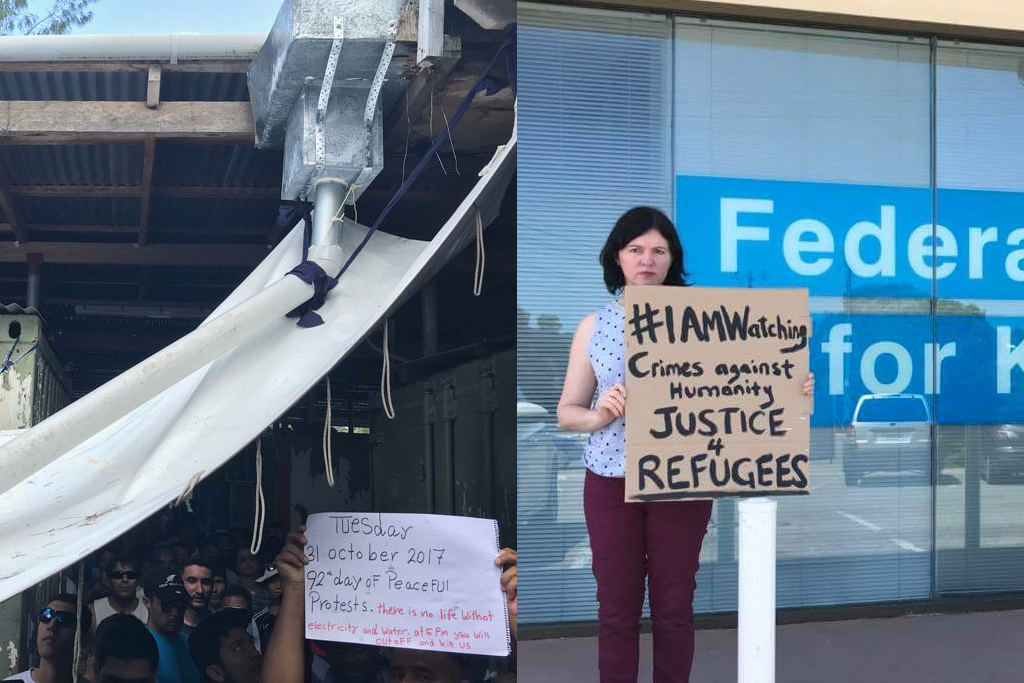The Government Is Cutting Support For Thousands Of Asylum Seekers. Here’s What You Can Do
"This is a crisis."

If you’ve been following the news about Australia’s treatment of asylum seekers, you’ll be all too aware that things remain in a state of humanitarian crisis.
Last week, another refugee died on Manus Island in an apparent suicide. The government didn’t bother to contact his wife, who found out her husband was dead when a refugee advocate called to offer condolences.
Even for those who’ve left Manus, the situation is dire. Many of the asylum seekers lucky enough to be transferred to Australia for medical treatment are now being forced onto a bridging visa that will see their income support cut off, which human rights advocates have described as “brutal”.
And as if that weren’t enough cruelty, the government is now quietly cutting off income support to thousands of people who are in the process of seeking asylum, waiting for the result of their refugee application. This is a crisis, and these people need your help. Here’s what’s going on:
What’s The Government Cutting Now?
When people arrive in Australia and apply for asylum, it takes a while — months, or even years — for their protection application to be processed. The first stage of that process involves waiting for the government to deliver an initial decision on whether to grant a visa. If that initial decision is a rejection, then the asylum seeker can appeal it, but that process can take years.
The government has always acknowledged that people waiting for their applications or appeals to be processed will require support, because these people may not have the right or the ability to work, and they can’t apply for Centrelink payments like the rest of us.
That’s why we have a thing called the Status Resolution Support Service (SRSS) program, which is funded by the Department of Home Affairs. It provides a very basic living allowance of around $247 per week, along with casework support, and access to trauma counselling. It’s meant to be a truly basic safety net for people in extraordinary need, and yet for many asylum seekers, it will soon be cut off.
How Many People Will Be Affected By This?
In August 2017, the government changes the SRSS so that people who are studying full time, people who have sent money home to family or friends (even if it’s a small amount that they earned through work), and people who came to Australia on student or other visas and then sought asylum are ineligible.
In June this year, even more people will become ineligible — anyone who’s ever transferred money to an Australian bank account not in their name, for example, even though there was no rule against that in past, as well as many single adult men with work rights, and even families who have not been assessed to be vulnerable.
The government’s assessment of whether someone’s vulnerable often does not reflect their situation very well. See this case study published by the ASRC, in which a man was found to not be eligible for the SRSS because his wife’s family helped pay for her initial visa application. It didn’t matter that the wife hadn’t received any further money in years, that the man had no work rights in Australia, or that they had a family — the man was cut off anyway.
The Asylum Seeker Resource Centre has more information on the changes here, but the upshot is that thousands of people in desperate circumstances, who are trying to navigate the cruel and confusing process of seeking protection in Australia, are about to be cut off from the only source of support they had. The ASRC says around 12,500 people are currently waiting for their applications to be processed, and may lose their SRSS due to the new eligibility criteria.
“The impact of the government cuts to income support is very real,” ASRC Director of Advocacy and Campaigns Jana Favero said.
“People won’t be able to afford rent or to feed themselves and we are seeing this at our doors more and more each week. People studying English will be forced to stop. Parents training to get a job to support their family will be forced to stop.”
Sherrine Clarke, the ASRC Director of Humanitarian Services, put things even more bluntly. “It is likely that the majority of people being exited from SRSS will be unable to pay their rent and become homeless within a month,” she told us. “Many will be waiting years for their claims to be processed.”
“This is a crisis — most likely the largest crisis facing people seeking asylum in our community for more than 15 years.”
And how has the government justified this? Mostly by avoiding acknowledging what it’s doing — rather than describe it as cutting support, it says asylum seekers will soon “transition out” from SRSS. It has previously claimed that this transition is just to ensure that people with the capacity to work will support themselves, and said that vulnerable people will still have the support they need.
A spokesperson for the Department of Home Affairs said “the Status Resolution Support Service is not a social welfare program”, and instead is “designed to provide short-term, tailored support to those who have barriers to resolving their immigration status”. The Department did not respond to our questions about how many people will have their SRSS payment cut, nor did it respond to questions about whether it was aware of the spike in requests for support received by the ASRC.
Here’s What You Can Do To Help
If this situation strikes you as a crisis, you’re right, and it’s time to do something about it.
We’ve written previously about some of the small, simple things you can do to help out here — see this post for advice on how to call your MPs, as well as Peter Dutton’s office, to demand change.
Once you’ve done that, consider helping out some of the organisations who are directly assisting asylum seekers in need. The Asylum Seeker Resource Centre is already seeing a huge increase in people needing urgent assistance, and that demand is only going to rise as more people have their support payments cut off — Favero told Junkee the ASRC expects at least 800 people to be impacted in Victoria alone in the first wave of changing starting on June 18.
The organisation desperately needs your support to provide that assistance. You can make a one off or monthly donation, and see exactly what that donation will fund, here.
And if you don’t have money to spare, there are plenty of other ways you can get involved here, including dropping off food and essential items or volunteering.
Feature image via Jill Favero, Kate Ausburn, used under CC BY-SA 2.0.


